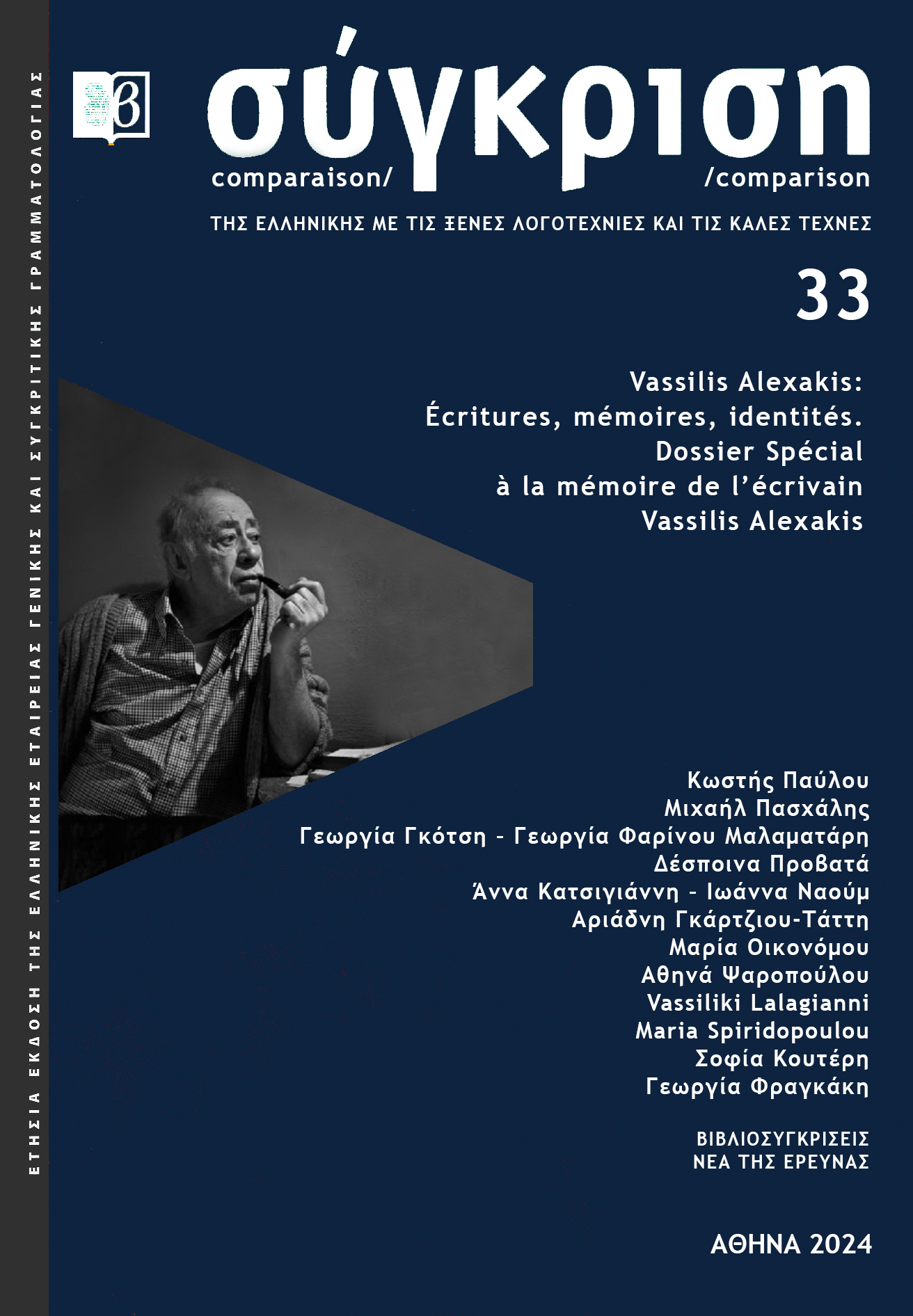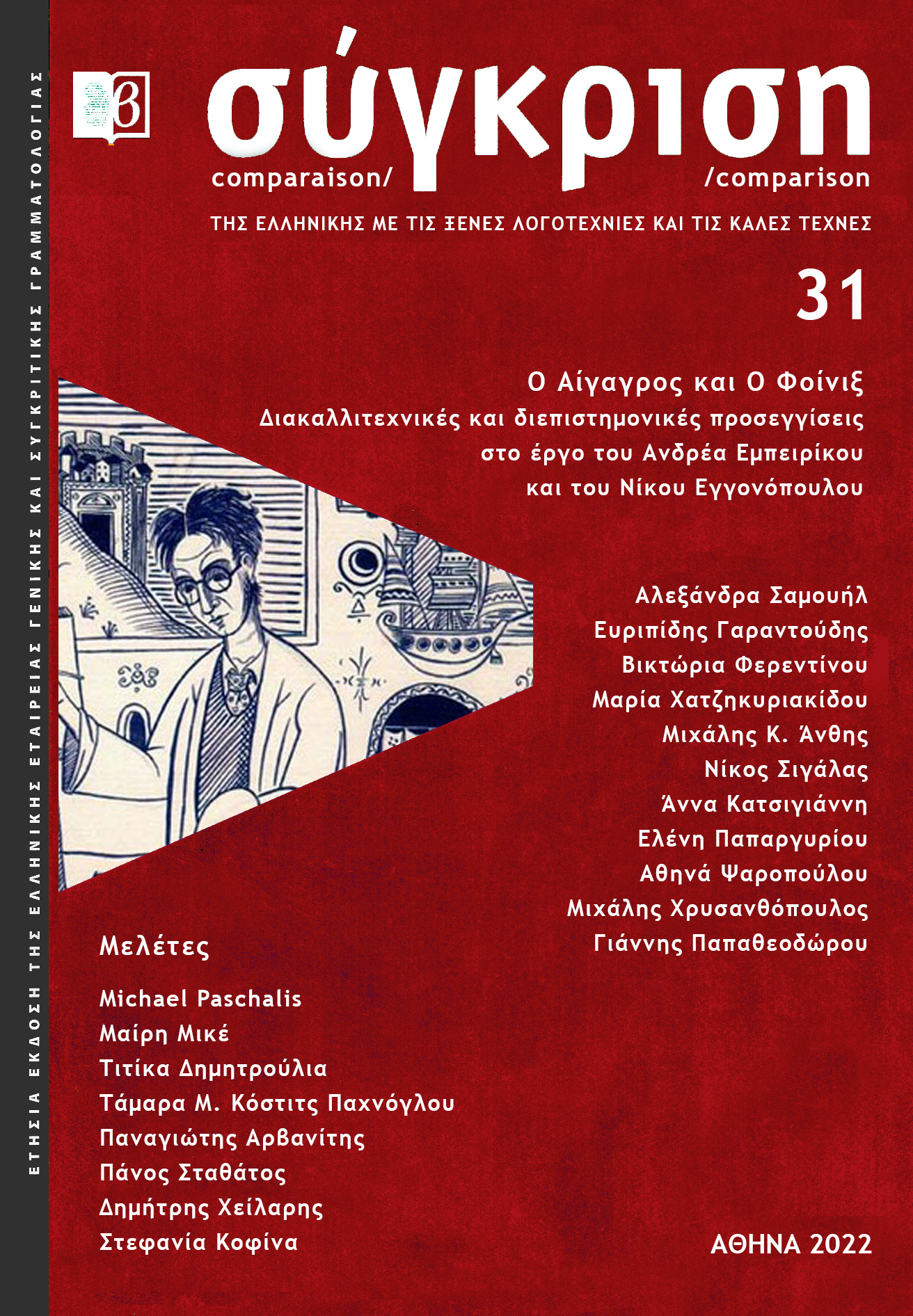Η μπερξονική διάρκεια στην ποίηση του Ανδρέα Εμπειρίκου: Ένα χαρακτηριστικό παράδειγμα από την «Αργώ»

Περίληψη
The bergsonian concept of “durée” in the poetry of Andreas Empeirikos: An illustrative example from “Argo”
This paper endeavors to illuminate the presence of the bergsonian concept of “durée” within the poetry of Andreas Empeirikos. It seeks to examine an illustrative example of this presence in the form of an “epiphany of the past recaptured” found in his novel “Argo”. “Durée”, considered one of the most profound concepts of bergsonism, encapsulates the idea of fluid and undivided time, wherein the past and present seamlessly interpenetrate through the faculties of memory. Bergson emphasizes that a poet has the capacity to reveal this interpenetration and portray the fluidity inherent to the “real durée”. In “Argo” the enigmatic character Don Pedro undergoes an “epiphany of the past recaptured”. Within this experience two significant events, profoundly relevant to his psyche, interpenetrate: the (present) witnessing of his daughter’s intimacy with her lover and the (past) recollection of the Freudian “primordial scene”. Empeirikos adeptly incorporates the bergsonian concept of “durée” into his literary work, adopting it in a manner akin to Deleuze, even though he wrote “Argo” two decades before the advent of Bergsonism.
Λεπτομέρειες άρθρου
- Πώς να δημιουργήσετε Αναφορές
-
Ψαροπούλου Α. (2025). Η μπερξονική διάρκεια στην ποίηση του Ανδρέα Εμπειρίκου: Ένα χαρακτηριστικό παράδειγμα από την «Αργώ». Σύγκριση/Comparaison/Comparison, (33), 289–301. ανακτήθηκε από https://ejournals.epublishing.ekt.gr/index.php/sygkrisi/article/view/35638
- Τεύχος
- Αρ. 33 (2024)
- Ενότητα
- Άρθρα

Αυτή η εργασία είναι αδειοδοτημένη υπό το CC Αναφορά Δημιουργού – Μη Εμπορική Χρήση – Παρόμοια Διανομή 4.0.
Οι συγγραφείς των άρθρων που δημοσιεύονται στο περιοδικό Σύγκριση διατηρούν τα δικαιώματα πνευματικής ιδιοκτησίας επί των άρθρων τους, δίνοντας στο περιοδικό το δικαίωμα της πρώτης δημοσίευσης. Άρθρα που δημοσιεύονται στο περιοδικό Σύγκριση διατίθενται με άδεια Creative Commons 4.0 και σύμφωνα με την άδεια μπορούν να χρησιμοποιούνται ελεύθερα, με αναφορά στο/στη συγγραφέα και στην πρώτη δημοσίευση για μη κερδοσκοπικούς σκοπούς και με δικαίωμα τροποποίησης μόνον με παρόμοια διανομή (αν αναμείξετε, τροποποιήσετε, ή δημιουργήσετε πάνω στο υλικό, πρέπει να διανείμετε τις δικές σας συνεισφορές υπό την ίδια άδεια όπως και το πρωτότυπο).



